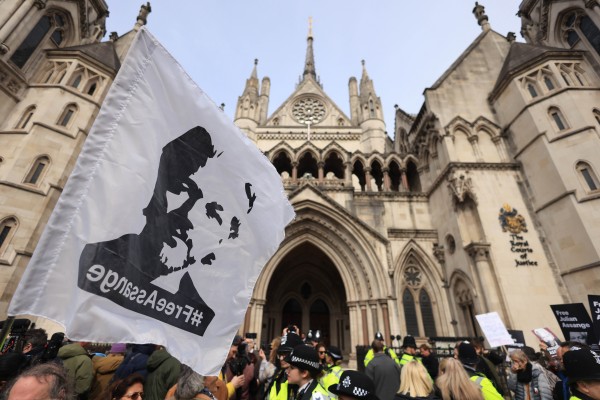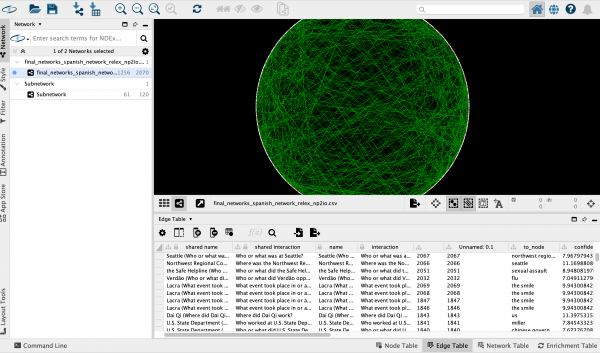Next month, supporters of Ecuador’s Organic Communications Law will mark the first anniversary of its passage, but many journalists say that there will be little to celebrate because the law has hindered press freedom on numerous occasions.
With the approval of this law, the government created the Communication and Information Superintendence Office (SUPERCOM) to monitor, enforce and regulate laws pertaining to communications rights and to apply sanctions established by the Organic Communications Law.
As of March of this year, the SUPERCOM office had received 93 complaints against journalists and publications. Out of the 93, 14 news outlets and reporters have been sanctioned with fines, retractions and apologies, according to its website, although the local press freedom group, Fundamedios, says that the details of only eight of those 14 cases have been made public.
Cartoonists are also being targeted for creating images poking fun at issues relating to government officials or entities.
On Jan. 14, a complaint was filed at the SUPERCOM office against cartoonist Xavier Bonilla, better known as Bonil, for a cartoon created and posted on Dec. 28 on the daily El Universo showing the police and prosecutors seizing computers and other items from a journalist’s home last November.
Prior to the complaint, Ecuadorean President Rafael Correa threatened to use the communications law against the paper in question via his daily television address, said Cesar Ricaurte, director of Fundamedios. Subsequently, the newspaper was ordered to pay a fine equal to 2 percent of its profits averaged over three months and ordered to publish a retraction on the cartoon published, which the paper did on Feb. 5.
Ecuador has become an incredibly hostile environment for journalists attempting to publish any information critical of the government.
After registering 174 reports of aggression against members of the media last year, 2013 proved to be the most hostile year for journalists in Ecuador since the inception of Fundamedios in 2006.
In the first quarter of 2014, at least 68 complaints have been registered, 17 of them are considered judicial harassment. In addition, verbal insults, death threats, physical attacks, also ranked as samples of aggression against journalists working in Ecuador.
“In Ecuador, about 90 percent of what is shown on television is controlled by the government as only one independent channel with national reach is on the air today,” Ricaurte said.
On May 8, President Correa made an appearance at the University of Costa Rica while visiting the country for the inauguration of its new elected President Luis Guillermo Solís. There, Correa took the opportunity to talk about his relationship with the media.
“The media is the greatest enemy”, Correa said to a student-filled auditorium at the Costa Rica school. “Since they invented freedom of the press, freedom of the press has been the will of those who own the press.”
In an interview with IPI, Juan Carlos Hidalgo, public policy analyst for Latin America at the Cato Institute in Washington, D.C., said that although Correa’s approach to limit the freedom of expression in the country may be more restrained than his regional counterparts, it is still alarming.
Correa “has shown fury against the Ecuadorian press, which he has evidently driven to impose self-censorship,” Hidalgo said. “In this regard, Correa has been a bit more subtle than Chávez and Maduro in their attacks against freedom of the press as he has not systematically pushed for the closing of different media outlets or publications, such has been the case in Venezuela.”
Instead, Hidalgo said, Correa has resorted to legal bullying in order to silence the press.
“Correa’s hostile attitude towards journalists and independent media has not only led to legislation that poses great restrictions on press freedom, but it has also generated an aggressive climate that appears to legitimise threats and attacks against journalists who report critically and independently,” IPI Press Freedom Manager, Barbara Trionfi said. “Unless the government sends a strong signal that attacks against journalists will not be tolerated, journalists will continue to be confronted not only with various forms of censorship and legal persecution, but their lives will be put in danger. This is an irresponsible attitude by any government and IPI urges the Correa administration to act in respect of the fundamental rights of the people and upholding the rule of law.”
Hidalgo also mentioned that Ecuador’s present economic status has given Correa political currency to push his so-called “citizen revolution” without much resistance from the public while continuing to suppress the press that questions his administration.
“What is worse is Ecuador’s communication law that clearly has the goal of drowning its critics, not only along the traditional media but also through alternatives communication methods,” Hidalgo said. “At this time, there is no doubt that the Ecuadorean economy is in the midst of boom, which grants the president popularity and reinforces his agenda to consolidate his power and silence voices that are critical of his government.”
On May 6, writer and editor Marlon Puertas was threatened via the social media site Twitter, when account user @Lapazecua1 threatened the writer by starting a hashtag named “#a shot to Marlon” and mentioning the journalist in the message. Puertas denounced the threat and since then @Lapazecua1 account has been deactivated. This is not an isolated case. Last November, IPI News Innovation Platform reported on a case regarding seasoned journalist Martín Pallares, who writes for the newspaper El Comercio in Ecuador. Pallares has received numerous threats via the social network Twitter beginning in April of 2013 and culminated with a death threat in May of last year by an account user telling him to leave the country or risked getting shot.
“When the state is the one that harasses you, discredits you, who disparages you, you feel a dreadful weakness,” Pallares told Fundamedios last November. The president “has insulted me, he has called me a liar, he has dared to fight with him,” Pallares continued. “There have been instances where the President has shown my photo on [his daily television address] which represents an attack on my physical safety.”
Pallares affirmed journalism can still be done in Ecuador but “with many restrictions, with a great deal of fear, with self-censorship,” he explained.
“I think self-censorship exists. We are terrified of trials. We are afraid of the Communication Law, which implicates a series of limitations and threats, many times intangible,” the journalist said.


